Understanding rounding Rounding Worksheets for 8-Year-Olds
7 filtered results
-
From - To
Welcome to our "Understanding Rounding Rounding Worksheets for 8-Year-Olds" page! Designed specifically for young learners, these engaging worksheets help students grasp the concept of rounding numbers effectively. With colorful illustrations and varied exercises, children will find rounding to the nearest ten or hundred exciting and accessible. The worksheets reinforce essential math skills through fun activities that boost confidence and enhance understanding. Ideal for classroom use or homework, our resources make learning enjoyable and effective. Help your child master rounding with our well-crafted, age-appropriate worksheets that lay a solid foundation for future mathematical concepts. Start rounding with joy today!
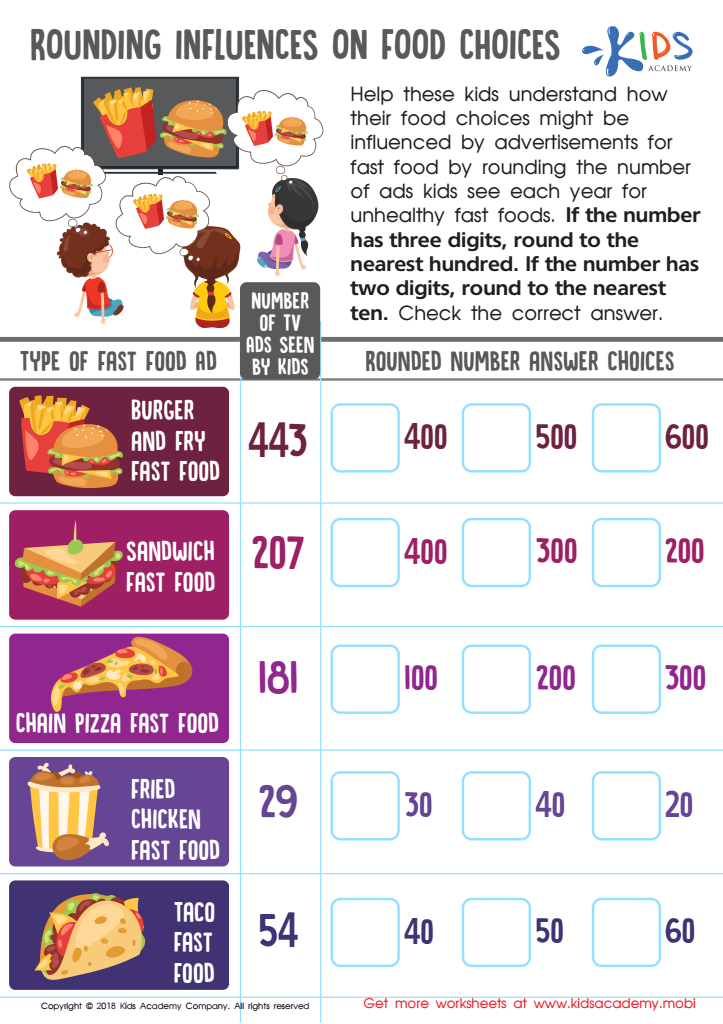

Rounding Influences Food Choices Worksheet
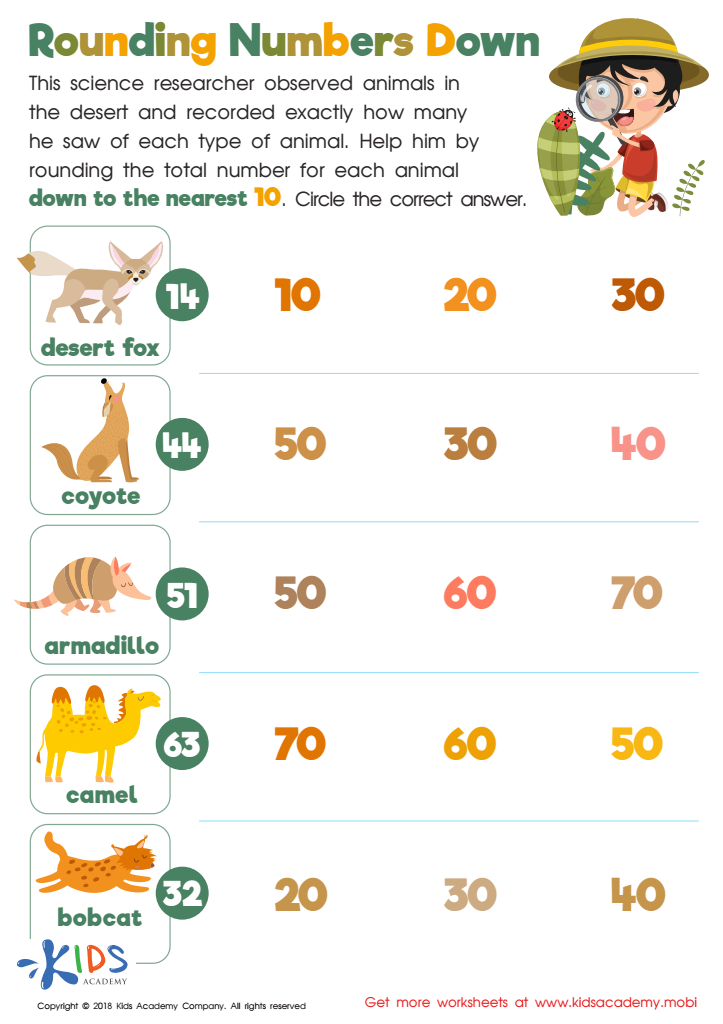

Rounding Numbers Down Worksheet
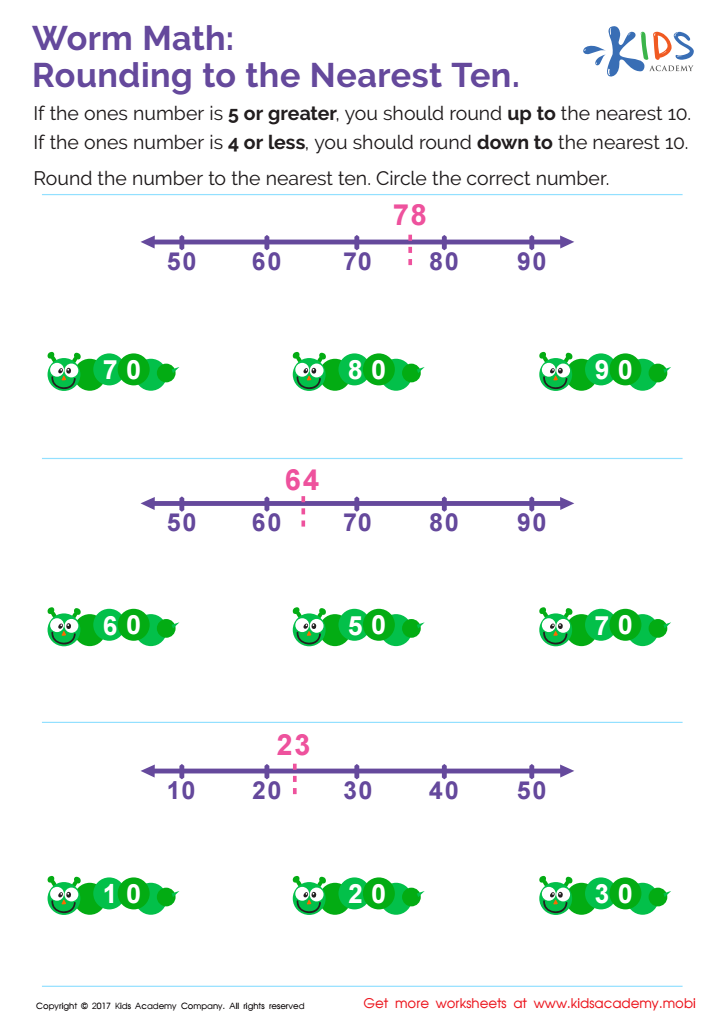

Rounding to the Nearest Ten Worksheet
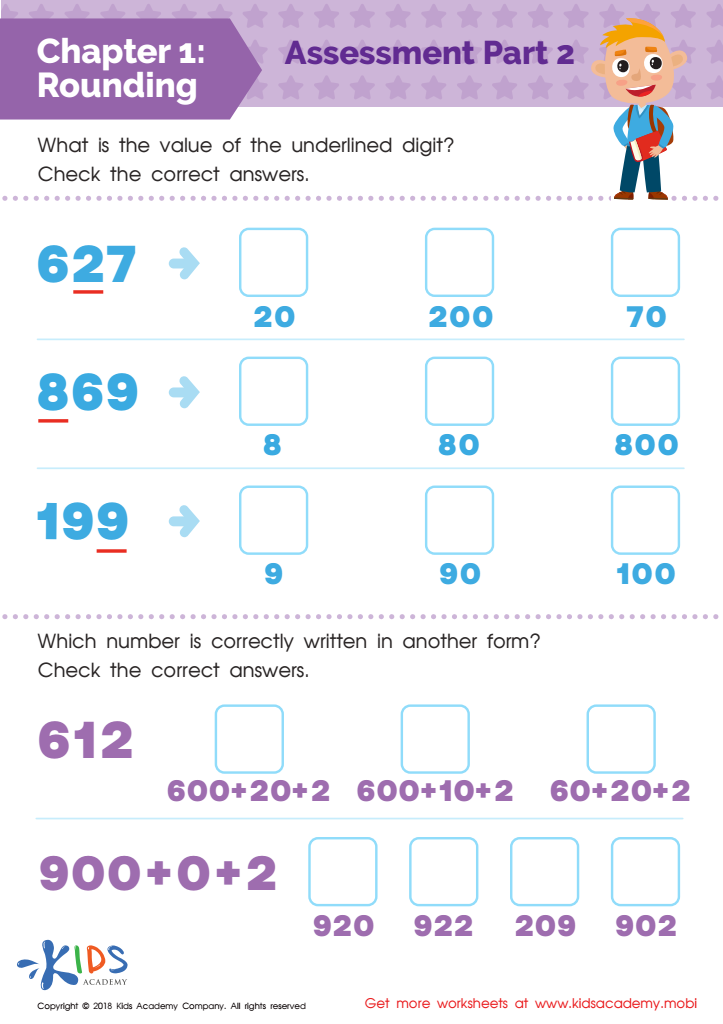

Rounding 3 Digit Numbers Worksheet
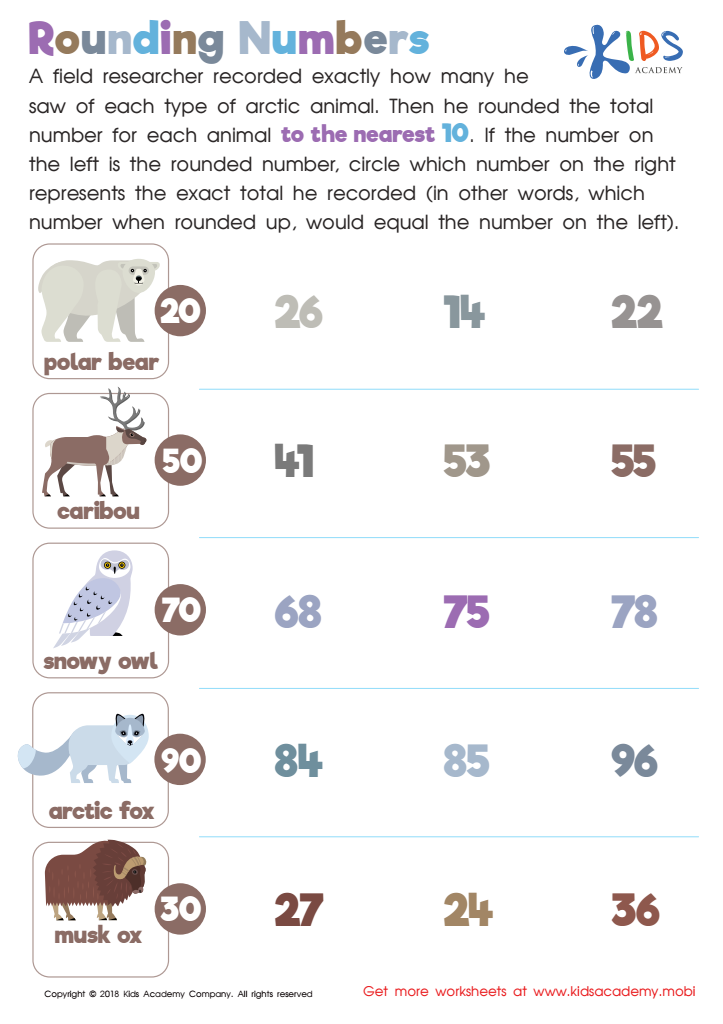

Rounding Numbers Worksheet
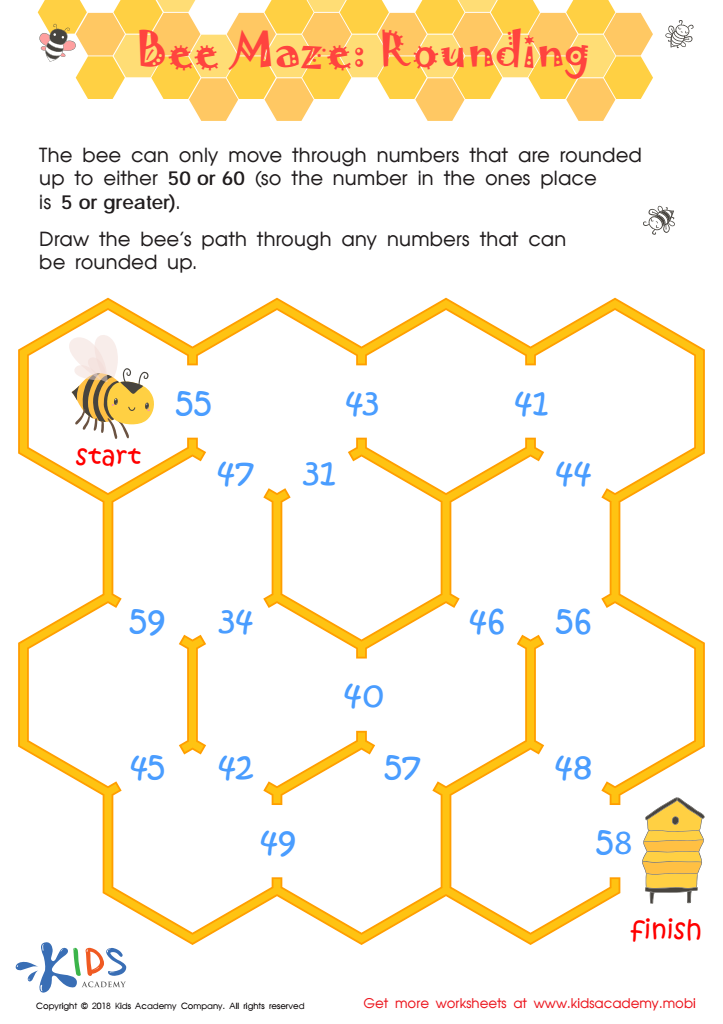

Bee Maze Rounding Worksheet
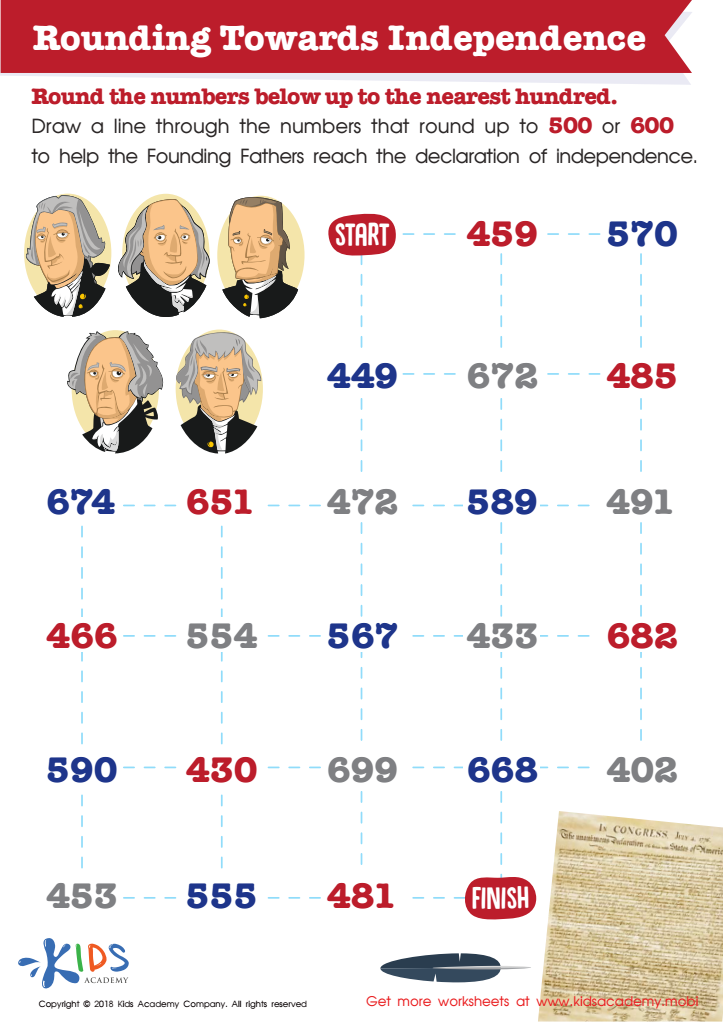

Rounding Towards Independence Worksheet
Understanding rounding is crucial for 8-year-olds as it lays the foundation for their mathematical abilities and everyday problem-solving skills. At this age, children are beginning to grapple with larger numbers and basic operations like addition, subtraction, multiplication, and division. Rounding helps them simplify these numbers, making calculations easier and faster. For instance, when estimating costs while shopping or determining distances, rounded figures provide clearer insights without the need for precise calculations.
Additionally, mastering rounding fosters numerical literacy, which is essential for real-world applications. Kids use rounding in budgeting their allowances, comparing prices for the best deals, or even during cooking while measuring ingredients. By teaching them rounding, parents and teachers enhance their confidence in handling everyday math scenarios.
Moreover, rounding introduces key concepts such as place value and the concept of nearest tens, hundreds, etc., strengthening their overall number sense. This foundational skill also prepares them for more complex mathematics in later grades, where rounding becomes critical in statistics and higher arithmetic.
In summary, understanding rounding empowers children, equips them for practical life situations, builds essential mathematical skills, and sets them on a path to future academic success. Both parents and teachers play a vital role in nurturing this important understanding.
 Assign to My Students
Assign to My Students


















